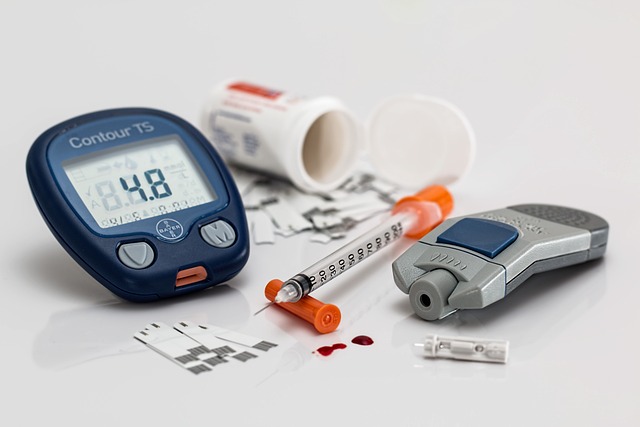17th July 2024 – by TwinsUK

What inspired you to write “Genius Gut”?
I wanted to share that what you eat can affect how you feel right now – how mentally sharp you feel, your mood, and how energetic you are. For too long the brain has been thought as separate to the rest of the body, and that’s not the case at all. And the gut has been hugely overlooked, it does so much more than just digest your food – it’s your second brain. It’s highly complex, containing its own nervous system, with more nerve cells than there are in your spinal cord. And its home to your gut microbiome, that can signal to your brain.
What is Genius Gut?
Genius Gut is a book for everyone – if you have a gut and a brain, then this book is for you! It’s an easy guide to the science of the gut-brain connection, and our latest understanding of how gut microbes signal to the brain influencing mood, cognition and behaviour. There are ten simple hacks on how and what to eat for your gut bacteria, brainpower and to feel your best, packed with actionable tips and advice based on my research in nutrition and the microbiome at King’s College London, and as a registered dietitian.
Can you explain the connection between our gut and brain in simple terms?
It’s the science behind the phrases “gut feelings” and “I’ve got butterflies in my stomach”. For too long we’ve thought of the gut as only a food factory, when in fact it’s intimately connected with the CEO of your body – your brain. Your gut and your brain are physically connected through your vagus nerve, a long wandering nerve that reaches down from your brain to your upper body, including your gut. And your gut microbes can signal to your brain, through your vagus nerve, but also via metabolites, hormones and the immune system.
What are some common misconceptions about the gut-brain connection that your book addresses?
I wanted to highlight in Genius Gut how connected the brain and the gut really are. We talk about mental health and physical health as if they are two separate things. But we’re now understanding that many conditions and diseases of the mind can start in the gut or can be influenced by what we eat. Up to 80% of people with Parkinson’s disease also have constipation, that can appear as much as 20 years before movement and cognitive symptoms. In Alzheimer’s disease there’s a harmful build-up of mis-folding proteins in the brain, and there’s now early evidence in mice that these proteins could start in the gut first. You’re six times more likely to get Alzheimer’s disease if you have inflammatory bowel disease. And if you have irritable bowel syndrome, you’re significantly more likely to have anxiety and depression.
How does the gut microbiome influence our mental health?
Many people online claim that “90% of your feel-good serotonin is made in your gut”. While it’s true that 90% of serotonin is produced in the gut, this serotonin primarily helps with your digestion and it’s too large a molecule to pass through your blood-brain barrier to your brain. However, your gut bacteria do play an important role in helping your brain access the building blocks needed to produce your feelgood serotonin, as these smaller molecules can pass through the blood-brain barrier, for your brain to make serotonin itself.
How does the gut microbiome influence our cognition?
What microbes you have matters for your brain and cognition. For example, babies born via C-section initially receive their first batch of microbes from the hospital environment rather than from their mother. However, when these babies were given some of their mother’s vaginal microbiome for their guts, they had significantly better neurodevelopment at six months old than other c-section babies.
Gut bacteria are linked to differences in the size of the hippocampus, memory and cognitive skills throughout childhood and adolescence, with the brain continuing to develop up until 25 years old. Microbes matter later in life as well, helping to lower excess inflammation that can damage the brain. In aging mice, a microbiome transplant from their more youthful counterparts improved memory and reversed signs of brain aging. Research from our department of Twins Research has also highlighted this connection between microbes and cognition. Colleagues found that a prebiotic fibre supplement, which feeds your ‘good’ gut bacteria, improved performance in memory tests in just three months.
How has your personal journey influenced the insights and solutions offered in “Genius Gut”?
What many people don’t know about me is that I spent the first part of my career as a private chef. So it’s important to me that food is delicious, and that there’s room for the occasional cake or chocolate too. I strongly believe we need to recognise the joy that food brings – and that how we think about food matters too – do you beat yourself up for enjoying a slice of cake, or do you savour it and move on? When we talk about the gut-brain connection we aren’t only talking about the gut talking to the brain, but also how the brain talks to the gut; how stress and mood can affect your food choices, your digestion, and your microbes. Healthy eating for your gut-brain connection is about balance.
Dr Emily Leeming, Registered Dietitian and Research Fellow at Department of Twins Research and Genetic Epidemiology, King’s College London.
Dr Emily’s book, Genius Gut: The Life-Changing Science of Eating for your Second Brain is available to buy now.
You can also subscribe to her free weekly newsletter on Substack, called Second Brain
Socials: @dremilyleeming















